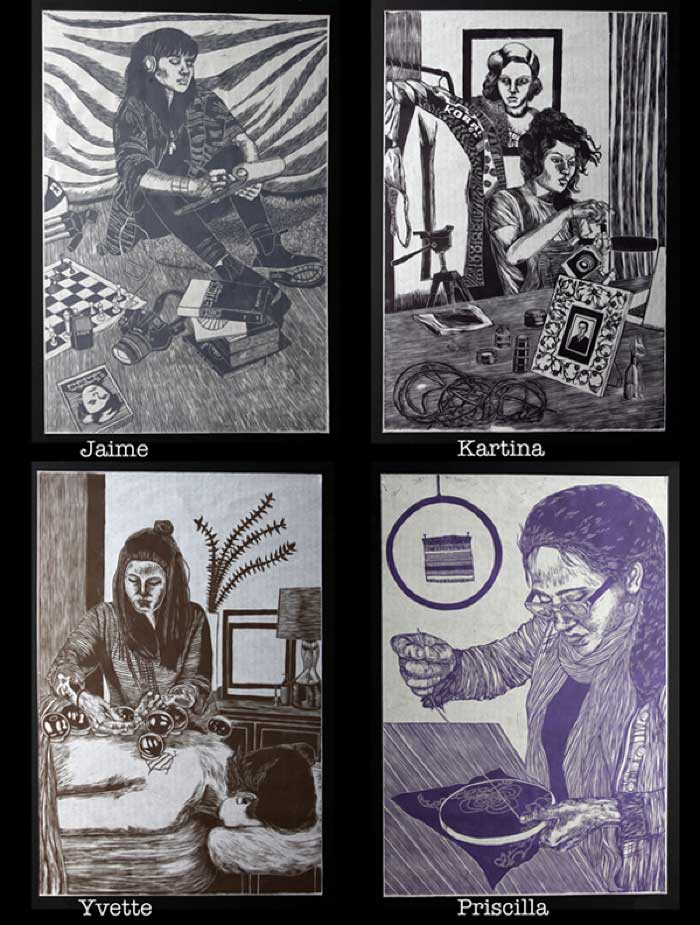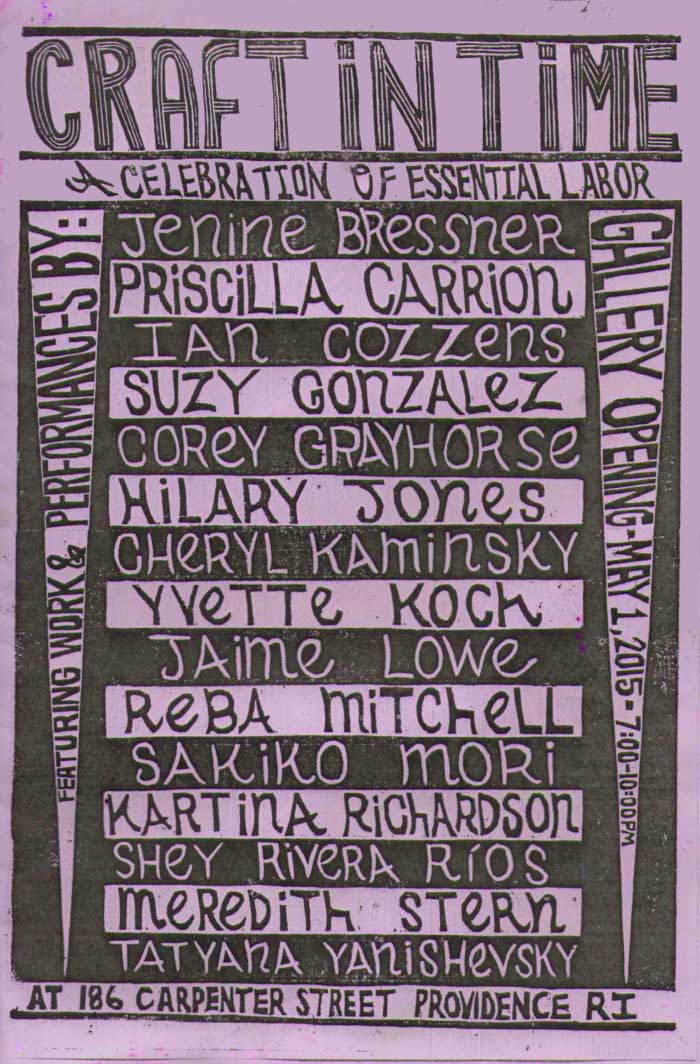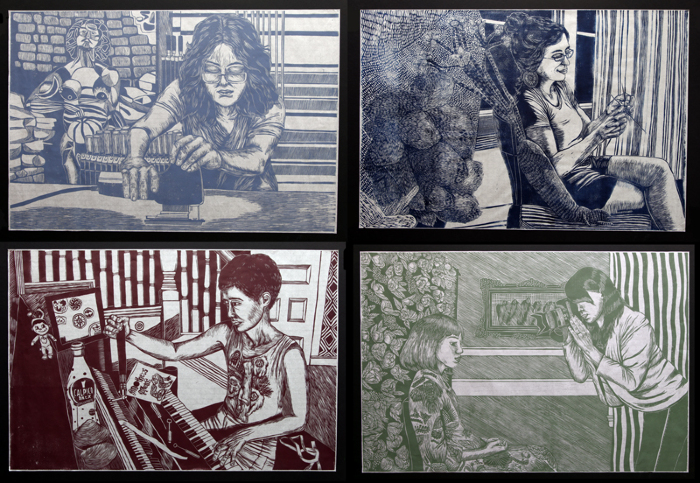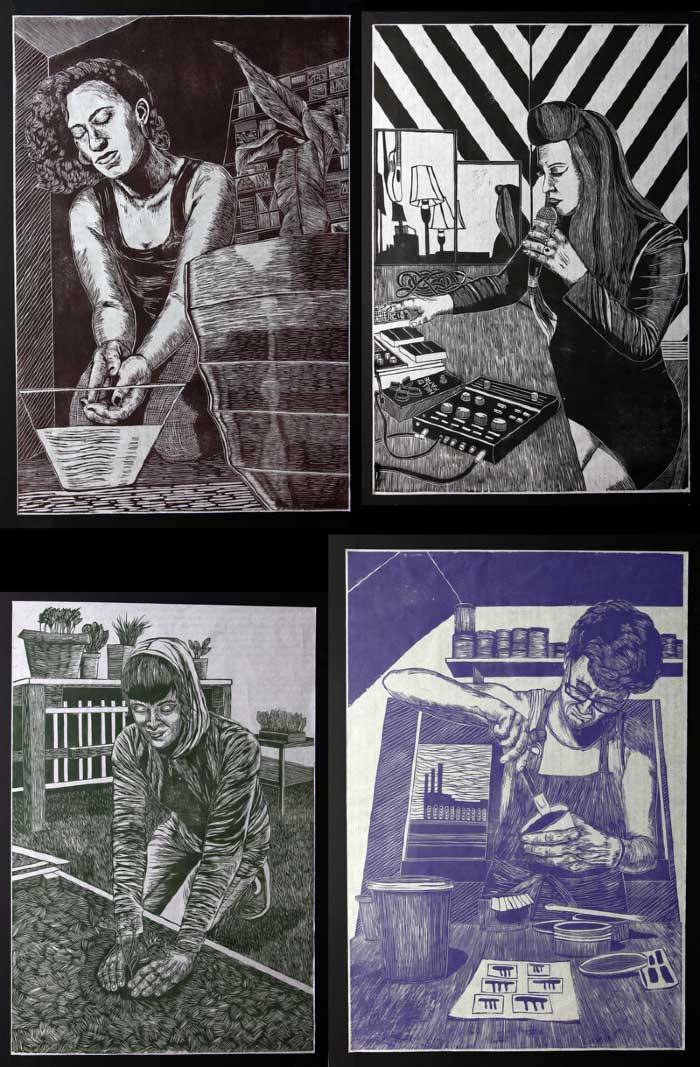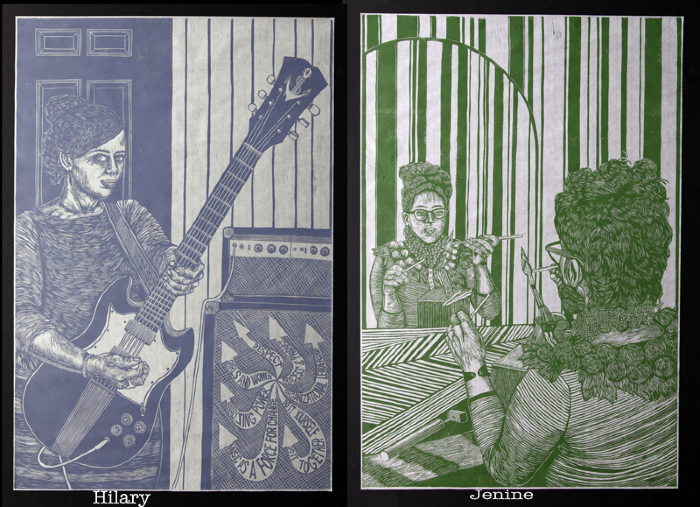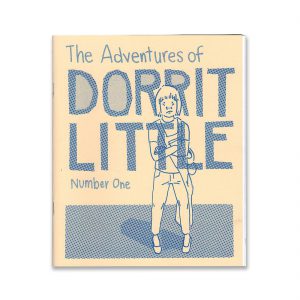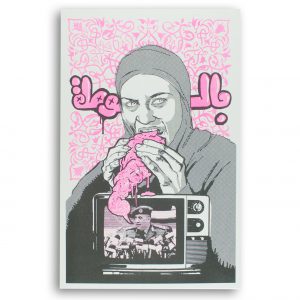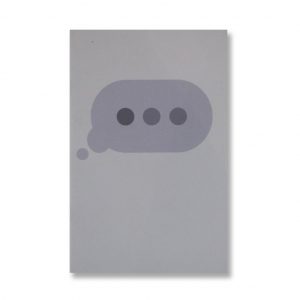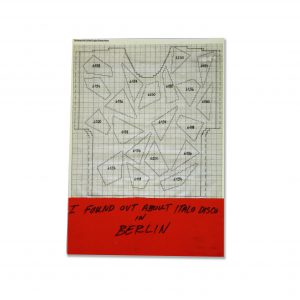Craft in Time: A Celebration of Essential Labor, 2014–15
Craft in Time: A Celebration of Essential Labor, 2014–15
Date
2015
Edition Size
4
Media
Linocut
Binding
Loose pages
Format
Portfolio
Dimensions
36 × 24 in
Collection
Collection Development, Print PortfoliosView Collectors
Rhode Island School of Design, The RISD Museum
University of Connecticut (UCONN)
A printed portfolio of 14 linoleum block printed portraits, printed by the artist by hand. These pieces depict a selection of my colleagues: individuals who work in proximity to me and who inspire me. These portraits amplify the dedication and creative magic that individuals express while practicing their craft. Subjects are depicted in their studio, workplace, or home where they build, practice, or express their artistic craft. These pieces celebrate the complex, dynamic lives of our contemporaries who can teach, inspire, and inform our own work. By presenting people I interact with, rather than depict celebrities or strangers, the narrative is shifted away from objectifying individuals and instead emphasizes the importance of loving and celebrating one’s creative community.
This work interrupts the current framework of discourse on gender and creative identity as it is typically represented in the art world and mainstream cultural sphere. Discussions of gender are usually presented as a dichotomy of man versus woman. There is a presumed “male gaze” where women are presented as objects and men as the viewers. Instead, this project creates a “feminist lens” to investigate individual expressions of identity, which celebrates and reflects on the complexities of human experience from a place of respect, equality, and justice.
Further, the current narrative norm in this country is that white, cis-gender, straight men are the central model through which all experiences must be measured. All other voices are considered a “minority” or “special interest group” operating at the margins, and our lives and experiences are treated as such: we are therefore undervalued, misrepresented, or completely ignored. Rebecca Mead wrote in a New York Times article in 2014 that, “to demand that a work be ‘relatable’ expresses a different expectation: that the work itself be somehow accommodating to, or reflective of, the experience of the reader or viewer. The reader or viewer remains passive in the face of the book or movie or play; she expects the work be done for her. If the concept of identification suggested that an individual experiences a work as a mirror in which he might recognize himself, the notion of relatability implies that the work in question serves like a selfie: a flattering confirmation of an individual’s solipsism.” This project aims to interrupt this requirement of self-reflectivity within cultural production, to instead portray a range of portraits which broaden our understandings of the real complexities of human experience. While doing so, the work also acts to remind us of what all humans share- a desire to have space within which we can explore our desires, create our identities, and hone our craft, and to strengthen the bonds of solidarity which travel across space and time.
Those of us who are marginalized, ignored, or misrepresented in cultural production find ourselves lacking accurate representations of our friends, our families, and ourselves. Our voices and experiences have been systematically ignored, stolen, and written out of mainstream historical narrative and continue to be ignored within much of the mainstream current cultural dialog. We live in a society that has constructed biologically inaccurate and socially and psychologically damaging (mis) understandings of gender, race, ethnicity, economic class, and sexuality. Our true and complex lives and narratives are rarely represented accurately (or presented at all) within the art and cultural sphere and thus I put us at the center of this work. In order for anyone in our society to create a healthy identity and develop self-respect, we need models who inspire us as we carve our own paths.
This project amplifies the creative expressions of people creating their own identities through practicing their crafts. These individuals are my own “possibility models” and by amplifying our lives I aim to expand the current cultural conversation of gender, identity, and creative expression. People are depicted in their studio, workplace, or home where they build, practice, or express their artistic craft. This project works to introduce the idea of using an “intersectional feminist interruption” for understanding gender. I define intersectional feminist interruption as a strategy for disrupting the continuity and uniformity of power through the creation of cultural production that celebrates and loves human complexity. An intersectional feminist interruption works to create a path towards gender equality that operates beyond binaries, that specifically addresses the intersections of domination and discrimination between various forms of oppression. This framework depends on us working collectively and actively to shift our thinking, our institutions, our society, and our culture. In order to do so, we must support and engage with accurate representations of our extended communities. This project presents a variety of models of creative people thereby actively combatting current stereotypes and tropes that surround us in the media. In contrast, by engaging with these individuals as possibility models, we recognize the strength of those around us. This celebration of our cohabitants can inspire our own path towards self-determination and our construction of a healthy and complex identity and allows us to work together rather than struggle with one another to create a healthy, diverse, loving culture to live within.
— Meredith Stern
Prints feature portraits of the following people:
Jenine Bressner, Priscilla Carrion, Ian Cozzens, Suzy Gonzalez, Corey Grayhorse, Hilary Jones, Cheryl Kaminsky, Yvette Koch, Jaime Lowe, Reba Mitchell, Sakiko Mori, Kartina Richardson, Shey Rivera, Tatyana Yanishevsky

